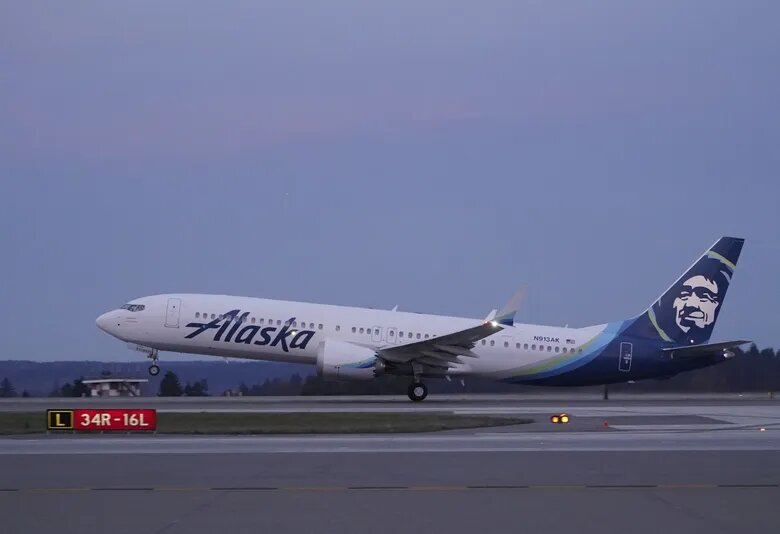Boeing’s shares fell by 8 per cent in early-hour trading by 5:05 a.m. ET, amid the Federal Aviation Administration (FAA) orders of Boeing 737 Max 9 aircraft groundings.
The FAA decision came after a piece of a flying plane blew up in the middle of an Alaska Airlines flight on Friday. The aircraft’s passengers posted images on social media that showed people wearing oxygen masks and a hole in the side of the aircraft. Before long, Alaska Airlines Flight 1282, which was headed to Ontario, California, returned to Portland.
After the incident, The National Transportation Safety Board launched an investigation into the blowout.
It’s noteworthy that November 11 was the delivery date of the 178-seater plane that experienced a blowout on Friday to Alaska Airlines.
On Saturday, the FAA announced that its emergency airworthiness directive, which mandates that aircraft undergo an inspection before taking to the skies again, would impact about 171 aircraft globally. Moreover, American airlines and carriers that operate on American soil are subject to the order.
“Safety will continue to drive our decision-making as we assist the NTSB’s investigation into Alaska Airlines Flight 1282,” Mike Whitaker, FAA Administrator said in a statement.
United Airlines has 79 and Alaska has 65 of the 171 aircraft that have been grounded as a result of the directive; the remaining 74 aircraft are divided among six other airlines.
Large-scale aircraft groundings by aviation authorities are uncommon, but since the airliner’s global grounding nearly five years ago due to two deadly crashes, the FAA has been closely monitoring the Boeing 737 Max.
AJ Bell’s investment director, Russ Mould, stated that the incident on Friday is the most recent in a “string of problems for the company” and predicted that carriers operating 737 Max aircraft will be “thinking long and hard about their future aircraft requirements.”
However, by midmorning on Monday, shares of Boeing’s European Competitor Airbus had increased 1.7 per cent as investors began to believe that the European company might overtake the American giant in the market.
